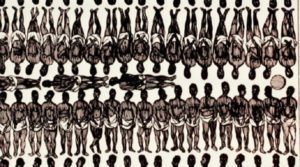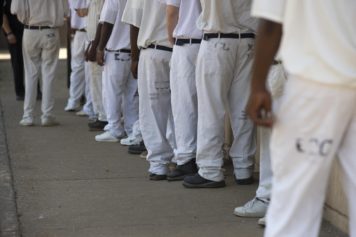
The announcement came as part of a fact-finding mission held by the working group, and meetings with Black people in cities such as New York, Chicago and Baltimore. Mireille Fanon Mendes-France — chair of the working group and daughter of revolutionary author, philosopher and post-colonial studies expert Frantz Fanon — aptly articulated the scope of the problem that has dogged and continues to plague African-Americans. She compared the current issue of police violence against Black people to the brutality of Jim Crow era.
“The colonial history, the legacy of enslavement, racial subordination and segregation, racial terrorism, and racial inequality in the U.S. remains a serious challenge as there has been no real commitment to reparations and to truth and reconciliation for people of African descent. Contemporary police killings and the trauma it creates are reminiscent of the racial terror lynchings in the past,” Fanon Mendes-France said. “Impunity for state violence has resulted in the current human rights crisis and must be addressed as a matter of urgency,” she added.

Mireille Fanon Mendes-France
The group’s members reportedly reacted to their findings with shock.
“It’s very easy in the United States for African-Americans to be imprisoned, and that was very concerning,” said Sabelo Gumedze of South Africa, as reported by the Philadelphia Tribune.
“What stands out for me is the lack of acknowledgement of the slave trade,” said Ricardo A. Sunga III, who lives in the Philippines.
The working group — which suggests ending racial profiling, reducing mandatory minimum sentencing, and ending solitary confinement and excessive bail — will report its findings to the UN Human Rights Council in Geneva, Switzerland in September.
The issue of reparations is nothing new, as it has been on the minds of Black people since we were denied the proverbial 40 acres and a mule we were promised during Reconstruction. In every legislative session since 1989, Rep. John Conyers (D-Mich.) has introduced bill H.R. 40, which would establish a commission to study slavery and its lingering impact on African-Americans and the nation in general. The commission would make recommendations to Congress on appropriate remedies.
In his 2014 seminal piece in The Atlantic, “The Case for Reparations,” Ta-Nehisi Coates wrote: “America begins in black plunder and white democracy, two features that are not contradictory but complementary. Plunder in the past made plunder in the present efficient,” he added, discussing the exploitation of African-Americans as a multi-century endeavor, and noting the linkages connecting slavery, Jim Crow and the subprime mortgage crisis.
Coates suggested that perhaps no amount of money can truly capture what America owes to Black people, America cannot ignore the sins of the past and must become better, more humane.
“More important than any single check cut to any African American, the payment of reparations would represent America’s maturation out of the childhood myth of its innocence into a wisdom worthy of its founders,” he wrote.
Writing an opinion piece recently in the New York Times, Carlton Mark Waterhouse – a professor at Indiana University’s McKinney School of Law — argued that reparations is a compelling way to stamp out racial inequality. Waterhouse notes that 90 percent of whites are opposed to reparations, not on any intellectual grounds but on a gut racial level, without even understanding the various non-monetary forms that reparations also could take. Further, Waterhouse offered that there is far more white public acceptance of reparations to other groups such as Japanese-Americans for wartime concentration camps, addressing a form of government discrimination.
“A colleague of mine summed it up when he said, ‘Are not reparations paid at the end of a war? Well, America’s war against black people has not ended,’” Waterhouse wrote.
Further, the law professor chastises Bernie Sanders and Hillary Clinton for either opposing reparations or endorsing race-neutral policies that fail to get to the heart of the “white racial dominance” behind racial inequality. And he argues that while reparations would not solve everything, it would strike at the heart of racial inequality and “challenge the narrative that whites ‘deserve’ the group-based privileges and advantages they enjoy.”
There are different calculations as to how much reparations would cost, with YES! Magazine recently tallying up the number at $6.4 trillion. The National Legal and Policy Center calculated reparations at $15 trillion, while Time magazine columnist Jack White estimated $24 trillion, and Dr. Denis G. Rancourt of the University of Ottawa concluded that America owes Black people $59.2 trillion.
Meanwhile, in 1988, President Reagan approved $1.6 billion in reparations to Japanese-Americans for their internment in World War II. In 2012, a federal judge approved a $1.2 billion government settlement with Black farmers who had been denied loans and assistance from the U.S. Department of Agriculture for decades, a move which President Obama called an effort in “addressing an unfortunate chapter in USDA’s civil rights history.” In 2012, the U.S. government paid a $3.4 billion settlement to Native Americans, in a dispute over federal mismanagement of tribal lands and trust fund accounts. Recently, the city of Chicago paid $5.5 million to 57 Black men who were victims of police torture at the hands of ex-officer Jon Burge. Further, in the last year President Obama earmarked $12 million in reparations to assist Holocaust survivors.


